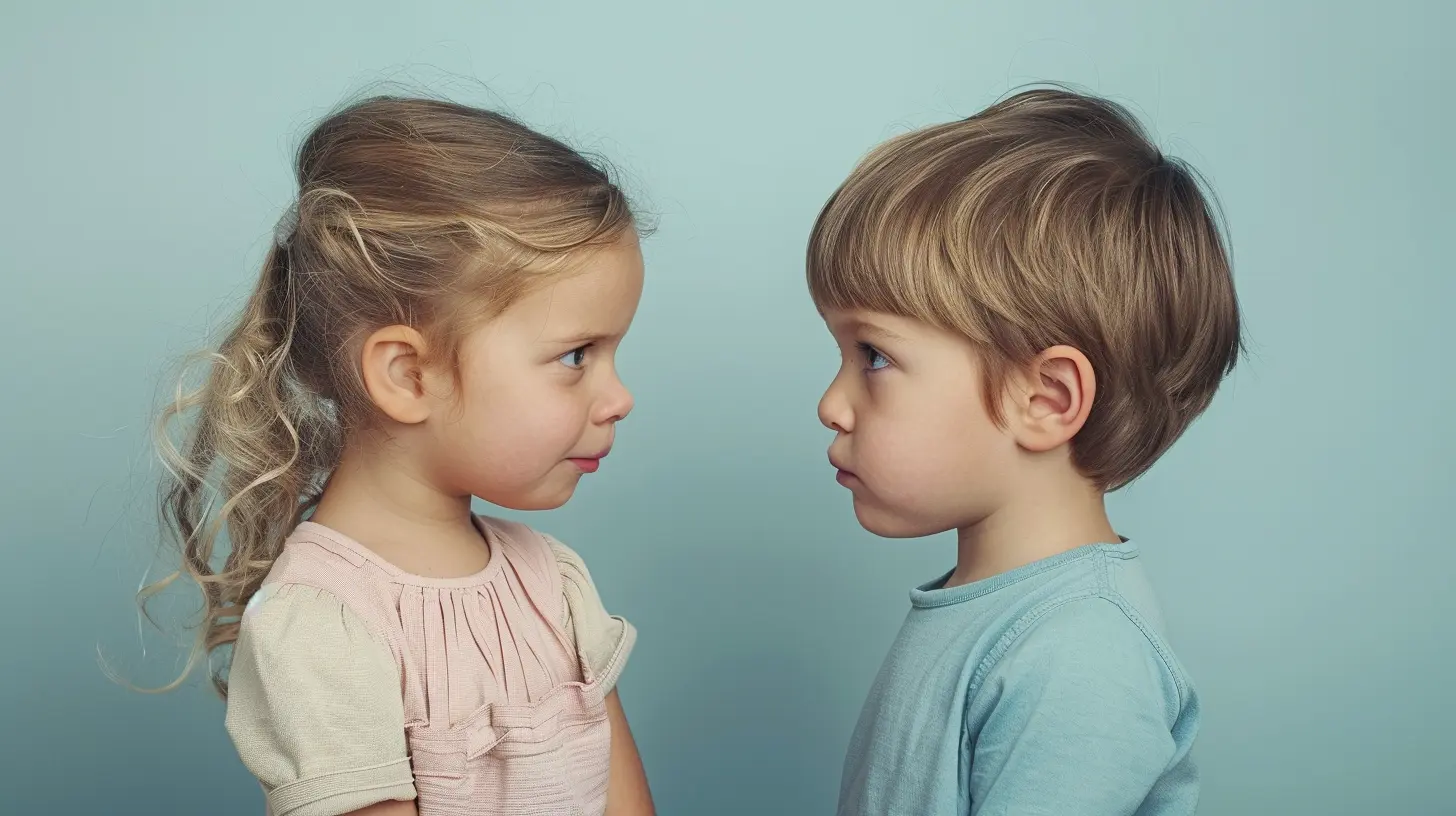Parenting Introverts vs. Extroverts: Embracing Differences in Your Kids
22 May 2025
Parenting isn’t a one-size-fits-all game, especially when your kids have contrasting personalities. If you have one child who thrives in social settings and another who prefers quiet solitude, you might find yourself wondering—how do I parent both of them effectively?
The key is understanding the unique needs of introverted and extroverted children and embracing their differences. Instead of trying to mold them into the same personality type, why not celebrate their individuality? Let’s dive into what makes introverts and extroverts tick and how you can nurture both without frustration. 
Understanding Introverts vs. Extroverts
Before we get into the parenting part, let’s break down the two personality types.Who Are Introverts?
Introverts are often misunderstood as shy or antisocial, but that’s not necessarily true. They simply recharge by spending time alone. Social interactions can be draining for them, and they often prefer deep conversations over small talk.Signs Your Child May Be an Introvert:
✅ Enjoys solo activities like reading or drawing
✅ Needs quiet time after socializing
✅ Prefers one-on-one interactions over large groups
✅ Thinks before speaking
✅ Dislikes being the center of attention
Who Are Extroverts?
Extroverts, on the other hand, gain energy from being around people. They thrive on social interactions, love group activities, and often speak before they think.Signs Your Child May Be an Extrovert:
✅ Loves being around people and making new friends
✅ Feels energized after social events
✅ Enjoys group activities and teamwork
✅ Speaks their thoughts out loud
✅ Finds quiet time boring or lonely
Now that we understand the basic differences, let's discuss how to parent them in ways that support their personalities. 
Parenting an Introverted Child
Introverted kids often feel pressured to be more social, but forcing them out of their comfort zone too quickly can backfire. Instead of pushing, respect their need for quiet spaces and thoughtful engagement.1. Give Them Time to Recharge
After a busy school day or social gathering, introverts need time to reset. Don’t be surprised if your child retreats to their room after a party. It doesn't mean they didn’t enjoy it—they just need solitude to regain energy.💡 Think of them like a phone battery—they don’t function well when drained!
2. Respect Their Need for Depth Over Small Talk
Introverts tend to avoid surface-level chatter in favor of meaningful conversations. Encourage deeper discussions by asking questions like, “What was the best part of your day?” instead of a generic “How was school?”3. Don’t Force Them Into Large Social Settings
While it’s important for introverts to build social skills, overwhelming them with back-to-back events can be exhausting. Instead of pushing them into big gatherings, help them find activities they genuinely enjoy—maybe a book club instead of a loud sports team.4. Teach Them to Self-Advocate
Introverts may struggle with setting boundaries, especially if they don’t want to disappoint others. Teach them phrases like, “I need a little quiet time,” so they feel comfortable expressing their needs.5. Foster Their Strengths
Introverts are often great listeners, deep thinkers, and creative problem-solvers. Encourage activities that highlight these strengths, such as writing, art, or strategic games.
Parenting an Extroverted Child
Extroverted kids are social butterflies, but they can sometimes struggle with patience, listening, or spending time alone. Understanding their high-energy nature will help you guide them in a way that doesn’t stifle their enthusiasm.1. Provide Plenty of Social Opportunities
Extroverts thrive when interacting with others. Playdates, team activities, and group projects are perfect for keeping them engaged. Instead of limiting their social time, channel it into positive experiences.💡 Imagine they’re a wind-up toy—they need motion to keep going!
2. Help Them Learn the Value of Quiet Time
While they love excitement, extroverts also need to develop the ability to enjoy quiet moments. Introduce relaxing activities like puzzles, journaling, or independent reading to help them appreciate downtime.3. Teach Them to Listen as Much as They Talk
Since extroverts tend to speak their thoughts quickly, they might interrupt without realizing it. Gently remind them to pause and listen before responding. Role-playing turn-taking in conversations can be a fun way to reinforce this skill.4. Encourage Them to Think Before Speaking
Excitement can sometimes lead them to blurt things out without considering the impact of their words. Teach them to take a short pause before responding, especially in emotional situations.5. Foster Their Strengths
Extroverts are natural leaders, communicators, and team players. Encourage them to participate in activities that utilize these strengths, like drama clubs, leadership roles, or sports teams.
What If You Have Both an Introvert and an Extrovert?
If you’re raising kids with opposite personalities, you might feel like you're navigating two different worlds. But instead of viewing it as a challenge, think of it as an opportunity for balance.1. Encourage Mutual Respect
Help them understand and appreciate each other’s differences. Teach your extroverted child that quiet time isn’t rejection and your introverted child that their sibling’s high energy isn’t annoying—it’s just who they are.2. Set Boundaries for Shared Spaces
If one child craves silence while the other wants to chat all day, find compromises. Create “quiet zones” for your introverted child while allowing designated social time for your extroverted child.3. Plan Activities That Suit Both
Find common ground! A game night or family hike can blend social interaction with space for personal reflection. Look for activities that allow both to participate without overwhelming one or the other.4. Embrace Individual Preferences
While family time is important, allow each child to enjoy activities that suit their personality. Your introverted child might prefer a solo hobby, while your extroverted child enjoys group outings—both are valid forms of self-care.Final Thoughts: The Beauty of Personality Differences
At the end of the day, no personality type is "better" than the other. Both introverts and extroverts have unique strengths that make them special. As parents, our job isn't to change who they are but to support them in becoming the best version of themselves.By understanding and embracing their differences, you’re not just raising kids—you’re raising self-aware, confident, and emotionally intelligent individuals. And that’s the real parenting win.
all images in this post were generated using AI tools
Category:
Parenting SupportAuthor:

Tara Henson
Discussion
rate this article
3 comments
Tyler Flores
Great article! Celebrating the unique traits of introverted and extroverted kids is so important for their development. Embracing their differences not only fosters their individual strengths but also helps them thrive in their own ways. Every personality brings something special to the family!
June 9, 2025 at 3:34 PM

Tara Henson
Thank you! I'm glad you found the article valuable. Celebrating our kids' unique traits truly enriches their growth and strengthens family bonds.
Kestrel McFarlane
Understanding and valuing your child's unique temperament fosters healthier relationships.
May 27, 2025 at 4:56 PM

Tara Henson
Absolutely! Recognizing and appreciating your child's unique temperament is key to nurturing strong, healthy relationships and supporting their individual needs.
Zedric Hurst
This article highlights the importance of understanding and nurturing the unique needs of introverted and extroverted children. Embracing their differences fosters emotional intelligence and helps cultivate their individual strengths and self-esteem.
May 22, 2025 at 3:53 AM

Tara Henson
Thank you for your insightful comment! Understanding and embracing our children's unique traits truly empowers them to thrive emotionally and socially.



